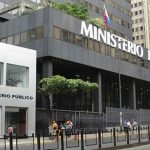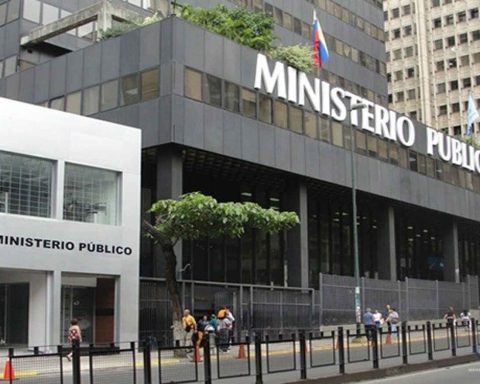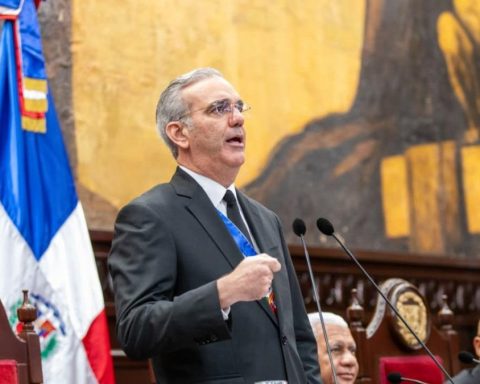The Constitutional Convention was finally dissolved. The plenary sessions ceased with fiery words, the avoidable outbursts before the media, the nonsense pronounced in the commissions likely to be amplified on social networks, one or another embarrassing performance carried out by a few conventional ones and, of course, the case of Rodrigo Rojas Vade whose impact was devastating. But, despite all these situations, various lawyers, experts in constitutional and administrative law highlight the concrete facts, such as the result of the work that the citizens entrusted to 155 independent people –in the end 154–many of whom came to this unprecedented stage with little or no political experience.
And it is at this point of reflection that the experts value the supermajorities: 388 articles approved with the maximum difficulty of 2/3. The same 2/3 that in the current Constitution have served as a lock to prevent modifications, in this case allowed the Plenary to become the space for consensus.
Just in time
There were not a few constitutionalists who, at the beginning and fundamentally during the process, acknowledged having bet that the conventional ones would not arrive with the times. It was a new experience, also marked by a rigorous parity and with representation of the first nations, the original peoples. Everything seemed against it. “I had doubts that I was going to draft a constitutional text with a minimum level of exhaustiveness,” says academic Javier Couso, an academic from the Diego Portales University, a constitutionalist from the Catholic University and with a doctorate from the University of California at Berkeley. For Couso, the analysis of the form is key, since it gives legitimacy to the content of the text, something that the current Constitution that governs Chile lacks, drafted by the “only criminal dictatorship” that our country has had.
The academic goes on to refer to the moment he considers most critical in this story: “I was stressed by how long the drafting phase of the Regulations took, because that took time away from the drafting of the text itself. The last five months have been a lot of hard work by the conventional ones”, he adds, referring to what some of the representatives of popular sovereignty within the organ –and all trends– can confirm, due to the long working hours and the few moments of rest that carrying out an enormous task implied.
Tomás Jordán looks at the text and is amazed that it is “reasonable and adequate”. It seems incredible to him that it was elaborated, not only because time was against it, but because it was achieved despite the clear fragmentation of forces. “It was a very diverse Convention, with 65% independent people with no political experience. I am surprised that they have managed to arrive with a text”, recognizes the constitutional lawyer, political scientist, professor of Constitutional Law at the Alberto Hurtado University and coordinator of the Nueva Constitución Observatory.
The constitutionalist Luis Cordero Vega, an academic from the Faculty of Law of the University of Chile, highlights an element that is key to understanding the final result: “The process has never ceased to be institutional and, beyond the shrillness, it seems to me that this is an asset that is not valued enough”. Couso agrees with his colleague, since –points out– “It was a constituent process procedurally regulated by the current Constitution.” By the way: Article 135 established that the Convention could not intervene in the powers of other bodies established by the current Fundamental Charter. “In that sense, (the Convention) never messed with the Supreme Court, with Parliament, the Presidency, or with the Comptroller, etc.”, adds the UDP academic.
Couso indicates that this feature also distinguishes it from constituent talks in other countries in the region, where the processes have generally been traumatic with the constituted power, which is what –sAccording to Couso– It has been seen a lot in the Bolivarian processes. “What we live here is not something normal, since the conventions in other countries (the constituent assemblies) have been tempted to intervene. The case of Bolivia, that of Venezuela… In those countries the assemblies became actors of contingent politics”, he points out.
The republican tradition of the Chilean people
The constituents recalled, shortly after the Convention was dissolved, the times they had to face all the technical insufficiencies they suffered in the first days. They did it through interviews and through social networks. Not to mention the complex social conditions in which this discussion took place: with a society that had just suffered an open fracture, with high levels of interpersonal mistrust and a high loss of prestige of the institutions, especially the political ones. As if that were not enough, in the midst of a pandemic.
And despite all the problems, the Constitutional Convention went ahead with its work and, for this, had the spontaneous collaboration of other republican institutions, such as municipalities, universities, etc. In the face of each adversity, Couso believes, all that republican tradition emerged that still lives in the spirit of the Chilean people, a clear survivor of a cultural moment that does not show much appreciation for civic education.
“Chile has an institutional heritage that is quite important. You always have to keep in mind that this is a country that has a certain familiarity with legal processes, and has an important institutional and legal culture”, emphasizes the head of the Department of Public Law of the UDP. The above is key, since –in your opinion– it guaranteed respect for the supermajority quorum of two thirds (2/3), forcing itself into transversal agreements that made possible a product devoid of eccentricities and exoticisms, which worried people with a more conservative spirit so much.
The most important thing is that “the text respects the character of a ‘democratic republic,'” Javier Couso points out, adding immediately that the proposal is built on a basic principle: a State with powers that are independent of each other, with the due limitations that prevent one from intervene in the other, and that “was even highlighted by international agencies,” he maintains, especially in times when we see a temptation to more authoritarian political expressions. Couso highlights that the respect for the 2/3 “was fulfilled beyond some debates that tried to go on to carry this norm”.
Cordero underlines this fundamental aspect in the drafting of the constitutional proposal, since such a high quorum made it necessary to set up a dialogue that would require much more time, which took away space for the drafting and subsequent improvement. “It is clear that there was a will to comply with the constitutionally assigned term”, expresses the academic from the University of Chile, who adds –not without a hint of astonishment– that “many of us believed that a couple of additional months were necessary to fine-tune the text.” Couso recalls that the granting of a new extension would have been impossible due to the current composition of Congress.
Jordán assumes at this point that, after a year of work, he has finally arrived at a “reasonable and adequate text to start a new cycle of Chilean politics, and it seems to me that this is the most relevant”, agreeing that “the The passage from the commission to the plenary session and the quorum of 2/3 allowed the more moderate forces of the Convention to advocate for a more representative text of the political system, excluding the extremes”.
In fact, none of the publicized “eccentricities” managed to pass through the sieve of the commissions themselves. The most representative case was the norm proposal presented by the conventional María Rivera, who proposed, in the Political System Commission, to repeal all the institutions and replace them with a popular assembly that would centralize all the powers, organizing society in similar popular councils. to the “soviets”, a proposal that did not even have the favorable vote of its promoter.
“The Regulation allowed us to arrive at an adequate text,” adds Tomás Jordán, who makes a link between product and procedure, while highlighting a text that manages to install coherent responses to a demand that aims to deconcentrate power in multiple dimensions (social, political, territorial, gender-based, etc.), and this has been possible –holds– because it was possible “to thread a backbone of essential issues for the new cycle in Chile, and that account for the cultural, social and political changes of recent decades and that had been appearing in society for quite a few years. The text has a backbone”, he concludes.


















